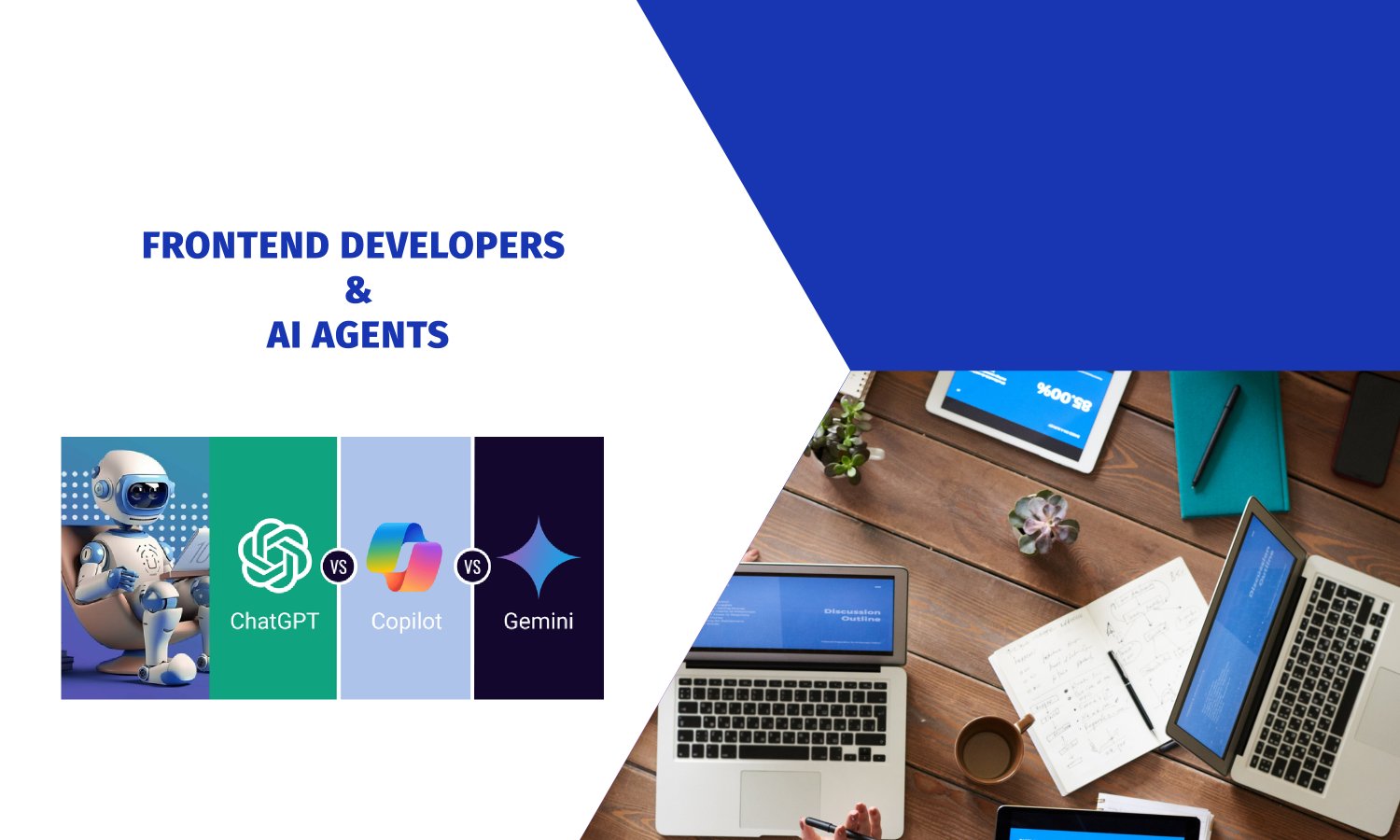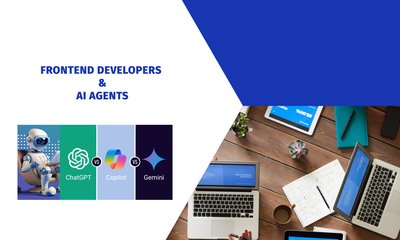How AI is Changing Frontend Development – Advice for Junior Engineers
By JoeVu, at: May 18, 2025, 7:48 p.m.
Estimated Reading Time: __READING_TIME__ minutes


The frontend landscape has always been dynamic, however with the rise of AI, it’s undergoing its most significant transformation yet. From automated code generation to design-to-code tools, AI is reshaping how interfaces are built and optimized.
For senior engineers, this evolution is exciting. For junior frontend developers and freshers, it can feel overwhelming. Are you falling behind? Will AI take over your role? Or is there a way to adapt and thrive in this new era?
Let’s unpack what’s happening and how juniors and freshsers can stay ahead of the curve.
How AI Is Impacting Frontend Development
AI is already being integrated into the daily workflows of many frontend teams:
1. Code Generation
Tools like DeepCodeAI, LlamaCoder and ChatGPT can now generate React components, write form validation logic, and even help with accessibility features like ARIA attributes or tab indexes.
2. Design-to-Code Automation
Platforms like Uizard, Anima, and Figma plugins (ex: Locofy) use AI to translate design files directly into production-ready code. This blurs the line between design and engineering.
3. Automated Testing
AI-powered tools can generate UI tests, simulate user behavior, and catch visual regressions before you even commit your code.
4. Performance and Accessibility Insights
AI can now audit frontends for performance issues (like CLS, LCP, FCP) or flag poor accessibility implementations in real-time.
In short: AI isn’t writing all the code—but it’s accelerating everything.
Why Doesn't this affect Senior Frontend Engineers?
Senior engineers tend to welcome these tools. Here is why:
-
They’ve seen trends come and go (jQuery, AngularJS, Bootstrap 2, etc). Adapting is second nature.
-
They have deep foundational knowledge, so they can judge AI output and know when it’s wrong.
-
They understand context that AI still lacks.
-
They focus more on system design, scalability, and team communication, which AI can’t automate.
For them, AI is a productivity boost—not a replacement.
The Challenge for Junior Frontend Developers
Junior developers, on the other hand, often rely heavily on tutorials, online snippets, and pattern repetition. But if AI can already generate the kind of code you’re learning to write… where does that leave you?
Here’s the good news: There’s a clear path to staying relevant.
How Juniors and Freshers Can Adapt to the AI-Powered Future
1. Focus on Core Principles, Not Just Frameworks
Understand how the browser renders pages, how layout and painting works, and why accessibility matters. Learn:
-
Semantic HTML
-
Flexbox, CSS Grid
-
ARIA roles and WCAG principles
-
Event bubbling and async rendering in React
-
SEO
AI can help you write code, but only you can understand why it matters.
2. Use AI as a Mentor, Not a Crutch
Don’t just copy/paste AI-generated code. Ask questions:
-
What does this component actually do?
-
Could I write it better or more cleanly?
-
Why did the AI choose this pattern?
Train yourself to be a reviewer of AI, not just a consumer.
3. Go Beyond the Code: Learn Design Thinking
Understand layout hierarchy, spacing, visual accessibility, and interaction patterns. The more you align with designers, the more valuable you become.
-
Study Figma files
-
Learn about usability heuristics
-
Practice turning designs into components with polish and precision
4. Build Projects That Force Real-World Thinking
Don’t just build to learn syntax. Create apps where you need to:
-
Make complex UI decisions
-
Handle API states (loading, error, empty)
-
Write responsive layouts for multiple viewports
-
Create reusable and composable components
This is where you build intuition which AI can’t teach.
5. Improve Communication and Documentation
In the AI-enhanced world, how you communicate matters more. Can you:
-
Explain your decisions?
-
Write clear PR descriptions?
-
Ask thoughtful design or product questions?
Human connection will never be automated.
Final Thought
AI is changing frontend development. But it’s not replacing frontend developers as it’s changing what we do and how we work.
For junior engineers, the goal is no longer to memorize syntax or recreate common layouts from tutorials. The goal is to understand the why, build real-world intuition, and use AI as a springboard, not a substitute, for growth.
Adapt, stay curious, and remember: the best developers are not the ones who know the most, they’re the ones who never stop learning.


![[Useful Site Review] visily.ai](/media/filer_public_thumbnails/filer_public/60/a0/60a0d519-27a8-4c28-981f-df1a821f1ff0/useful_site_review_visilyai.png__400x240_crop_subsampling-2_upscale.png)


